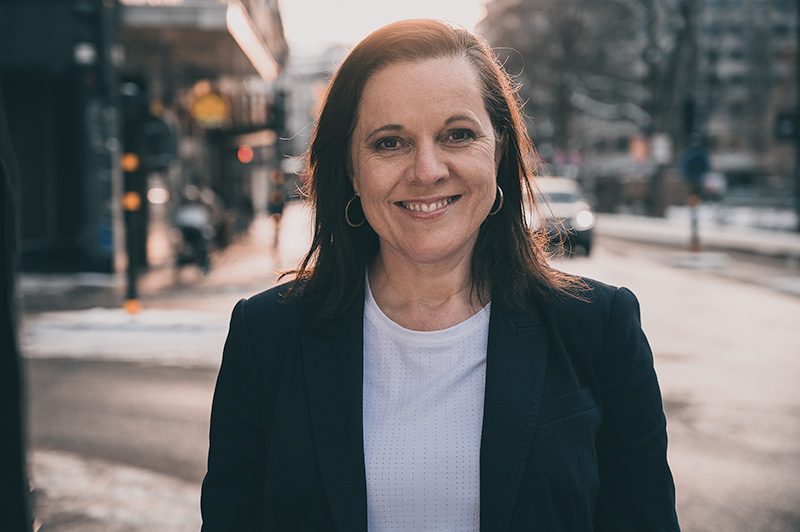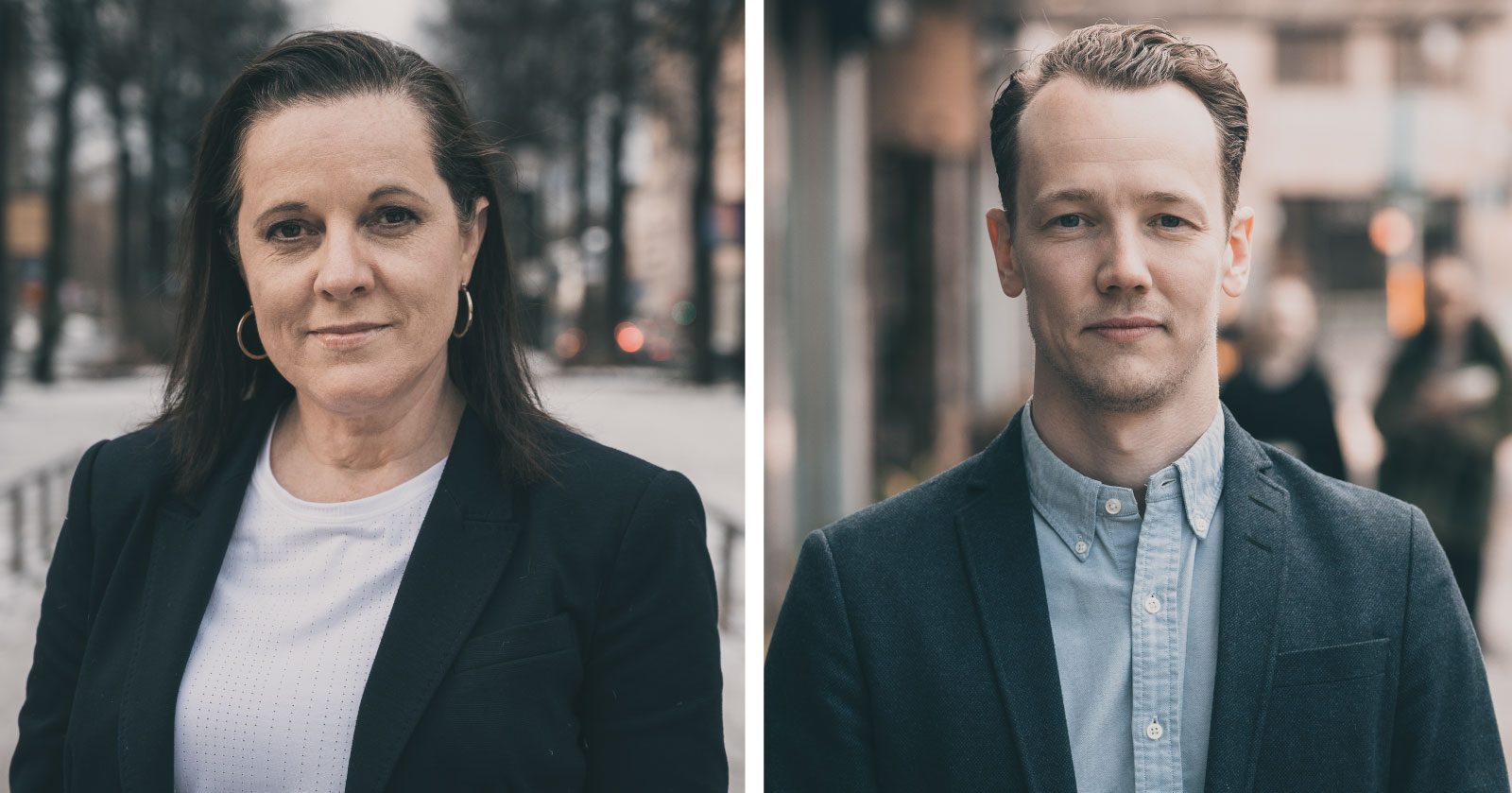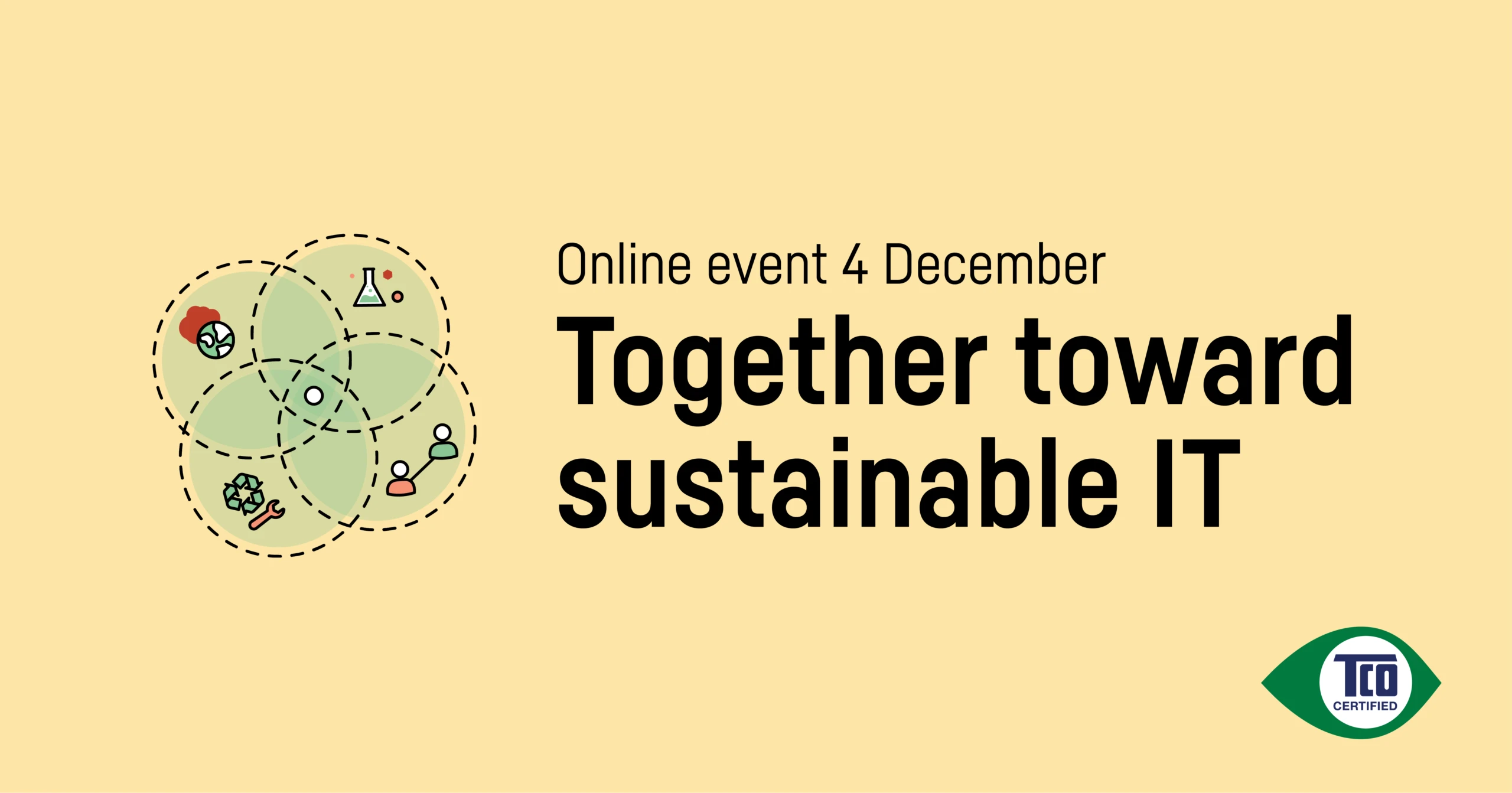The interest in sustainable IT is growing. Organizations and individuals increasingly strive to reduce the negative impact of the IT products they buy and use, encouraging the IT industry to move in a sustainable direction. Clare Hobby and Andreas Nobell explain some challenges and how the shift to more sustainable practices can be made more efficiently.
More purchasers than ever ask for products that are certified according to TCO Certified, and the number of IT brands that apply for certification is on the rise. Even though criteria were updated and made stricter, a record number of products were certified in 2022.
Clare Hobby, why do you think this is?

Clare Hobby is specialized in sustainable IT procurement and often talks to purchasers and policymakers in her role as leader of our purchaser engagement team.
“Organizations are now operating in a world where sustainability is no longer optional. We also see a rise in regulations around transparency and responsibility in procurement and supply chains. So, not only is sustainability a higher priority, but stakeholders are holding organizations to account for creating an impact that is authentic, rigorous and verified. With direct influence on product choice and supply chain, procurement is on the frontline of this sustainability impact.
“Leveraging the procurement voice is where TCO Certified comes in — as a tool for purchasers to signal their sustainability priorities to the IT industry. Our certificates are valid globally and allow organizations around the world to stand behind the same criteria, and contribute to a powerful, aggregated market signal.”
Describe some of the challenges purchasing organizations face today.
Clare: “IT hardware is a complex category — both in terms of product content and when it comes to the supply chain, which is both global and shifting. Greenwash is still around, and it’s getting more sophisticated, making it potentially difficult for purchasers to know the facts about the products they buy and the supply chain conditions during manufacturing. By using TCO Certified, buyers can request products where things like safer materials, energy and supply chain conditions are backed up by independent verification, so they don’t have to rely on the inaccuracy of unverified claims or declarations.

Andreas Nobell works with innovation and the development of TCO Certified. He is interested in traceability and finding solutions to the ever-growing e-waste problem.
Andreas Nobell, how can the IT industry be encouraged to take larger sustainability steps faster?
“Purchaser demand for more sustainable products is critical. However, other tools are needed too. These are complicated issues, and systematic and continual work is required to drive progress. Product tests and factory audits are of course necessary, as well as follow-up and clear consequences when non-compliances persist. Asking the right questions is also essential. Change happens faster when IT brands face clear demands with a long-term perspective, as it allows them to focus on making continual improvements that matter instead of trying to meet individual requirements that may contradict each other.
“TCO Certified turned 30 last year, and we have a long history of being at the forefront of sustainability. We’ve often driven issues that later on become part of legislation and other regulatory systems. Those IT brands that have been with us for a while know that complying with the criteria in TCO Certified helps them get ready for future demands from buyers. One example is USB-C, where we introduced a criterion for standardized connectors in 2018 to reduce e-waste and improve reusability. From 2024, this will become mandatory in the EU for a whole range of electronic devices, such as mobile phones, tablets and headphones.“
What is your best advice for organizations wanting to use IT products more sustainably?
Clare: “First of all, know that steering your budget to more sustainable alternatives is important. The majority of the sustainability impact happens in the supply chain, and procurement is the organization’s primary interface with the supply chain.”
Andreas: “When it comes to circularity, there is a lot you can do, and you can start right away. Set up a plan to reuse IT products internally in your organization, as this will help you extend product life, which is the single most important thing you can do to lower your climate footprint and other environmental risks. It can also reduce costs for your organization. To promote this, circular criteria is part of TCO Certified, and products must be durable and possible to repair and upgrade.”
Clare: “You can definitely do a lot on your own, but the impact is more powerful when many voices join together. Requirements in TCO Certified are harmonized worldwide, which improves efficiency for both purchasers and the IT industry.”




